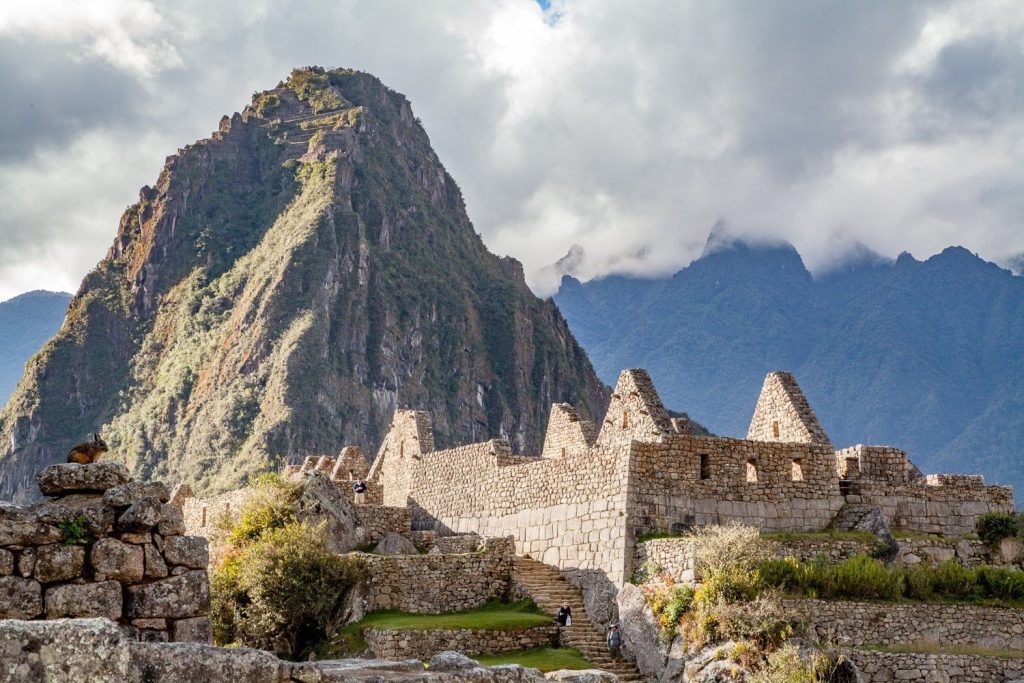
Elevation of Machu Picchu
Welcome to an extraordinary journey to one of the world’s most famous archaeological sites – Machu Picchu. Nestled high in the Peruvian Andes, this ancient wonder continues to captivate travelers from all corners of the globe. One of the key elements that make Machu Picchu truly unique is its elevation, which adds to the mystique and grandeur of this remarkable destination.
History of Machu Picchu
Machu Picchu, often referred to as the “Lost City of the Incas,” was built in the 15th century and remained hidden from the world until its rediscovery in 1911. Believed to have served as an important religious and ceremonial center, Machu Picchu showcases the incredible architectural and engineering skills of the Inca civilization.Geographical Location
Situated at an elevation of approximately 2,430 meters (7,970 feet) above sea level, Machu Picchu is perched on a mountain ridge overlooking the Sacred Valley. Its strategic location amidst the breathtaking Andean landscape provides awe-inspiring views and adds to the allure of this ancient marvel.Architectural Marvels
Machu Picchu is renowned for its impressive architectural features. The site is divided into two main areas – the agricultural sector and the urban sector. The agricultural terraces, built with precision and ingenuity, showcase the Inca’s mastery of farming techniques. The urban sector consists of temples, plazas, and residential buildings, displaying intricate stonework that has withstood the test of time.Significance of Elevation
The elevation of Machu Picchu not only adds to its visual splendor but also contributes to its historical and cultural significance. The high altitude played a vital role in the Inca belief system, connecting the earthly realm with the spiritual world. The celestial alignment of Machu Picchu’s structures and the surrounding mountains further emphasize the importance of elevation in Inca cosmology.Challenges Faced by Visitors
While the elevation enhances the beauty of Machu Picchu, it can present challenges for visitors. The high altitude can cause altitude sickness, characterized by symptoms such as headache, dizziness, and shortness of breath. It is essential for travelers to acclimatize properly and take necessary precautions to ensure a safe and enjoyable visit.Best Time to Visit
The best time to visit Machu Picchu is during the dry season, which typically runs from May to September. During this time, the weather is generally sunny, and the chances of rainfall are minimal. The pleasant temperatures and clear skies make it ideal for exploring the ruins and undertaking the famous Inca Trail trek.How to Reach Machu Picchu
Machu Picchu can be reached by various means. The most popular route involves taking a train from Cusco or Ollantaytambo to Aguas Calientes, the town located at the base of Machu Picchu. From there, a bus or a challenging hike can take you up to the ancient citadel. Another option is to embark on the renowned Inca Trail, a multi-day trek that culminates at Machu Picchu.Exploring the Inca Trail
The Inca Trail is a legendary trek that offers an unforgettable experience for adventure seekers. This scenic route stretches for approximately 43 kilometers (26 miles) and winds through diverse landscapes, including cloud forests, mountain passes, and Inca ruins. The journey culminates with the awe-inspiring sight of Machu Picchu emerging from the mist.Accommodation Options
There are various accommodation options available near Machu Picchu, ranging from luxury hotels to budget-friendly hostels. Aguas Calientes, the closest town, offers a wide range of choices to suit different preferences and budgets. Staying overnight allows visitors to witness the magical sunrise over the ruins and explore Machu Picchu at different times of the day.Conclusion
Machu Picchu’s elevation adds an enchanting dimension to an already awe-inspiring archaeological site. The mystical allure of this ancient wonder, combined with its breathtaking setting, continues to draw travelers seeking a glimpse into the fascinating history and culture of the Inca civilization.Frequently Asked Questions
1. What is the elevation of Machu Picchu?
Machu Picchu is situated at an elevation of approximately 2,430 meters (7,970 feet) above sea level.2. How does the high altitude affect visitors?
The high altitude can cause altitude sickness, resulting in symptoms such as headache, dizziness, and shortness of breath. Proper acclimatization is crucial to mitigate these effects.3. Are there any health risks associated with the elevation?
While altitude sickness is the primary concern, other health risks include dehydration, sunburn, and hypothermia. It is essential to stay hydrated, wear sunscreen, and dress appropriately for the weather.4. Are there any precautions visitors should take regarding the elevation?
Visitors should allow time for acclimatization, avoid strenuous activities upon arrival, and consult a healthcare professional if they have any pre-existing medical conditions.
Top Tours in Peru 2023
- Tour in Peru 5 days visit: Cusco, Machu Picchu, Sacred Valley and Rainbow Mountain
- Tour in Peru 5 days visit: Cusco, Machu Picchu, Sacred Valley and Humantay Lagoon
- Tour in Peru 9 days: Lima, Paracas, Nazca, Cusco, Valley, Machu Picchu, Lake Titicaca
- Tour in Peru 10 days visit: Lima, Cusco, Sacred Valley Machupicchu, Piura, Máncora
- Tour in Peru 15 days: Lima, Cusco, Valley, Machu Picchu, Lake Titicaca – Puno, Colca Canyon – Arequipa, Lima, Amazon River – Iquitos
- Tour in Peru 15 days: Lima, Paracas – Nazca, Colca Canyon – Arequipa, Lake Titicaca – Puno, Cusco – Sacred Valley, Machu Picchu, Lima
Tour from 1 to 30 days in Peru includes hotel, transportation, income and more
- Tour in Peru 1 day Machu Picchu in one day with the Train Company “Inca Rail”
- Tour in Peru 1 day Machu Picchu in one day with the Train Company “Peru Rail”
- Tour in Peru 2 days Machu Picchu and Sacred Valley
- Tour in Peru 2 days Machupicchu and Huaynapicchu
- Tour in Peru 3 days and 2 nights visit: Cusco, Machu Picchu
- Tour in Peru 4 days Cusco, Machu Picchu, Valley
- Tour in Peru 4 days with 1 night in Machu Picchu
- Tour in Peru 5 days visit: Cusco, Machu Picchu, Sacred Valley, Maras Moray
- Tour in Peru 5 days visit: Cusco, Machu Picchu, Sacred Valley and Rainbow Mountain
- Tour in Peru 5 days visit: Cusco, Machu Picchu, Sacred Valley and Humantay Lagoon
- Tour in Peru 5 days visit: Lima, Cusco, Machu Picchu, Sacred Valley
- Tour in Peru 6 days visit: Lima, Cusco, Machu Picchu, Sacred Valley, Lake Titicaca
- Tour in Peru 7 days: Lima, Arequipa, Colca Canyon, Cusco, Sacred Valley, Machu Picchu
- Tour in Peru 7 days: Lima, Cusco, Sacred Valley, Machu Picchu, Nazca, Paracas, Ballestas
- Tour in Peru 7 days: Lima, Valley, Machu Picchu, Puno, Lake Titicaca, Uros
- Tour in Peru 8 days visit: Lima, Paracas, Nazca, Cusco, Valley, Machu Picchu, Lake Titicaca
- Tour in Peru 9 days: Lima, Paracas, Nazca, Cusco, Valley, Machu Picchu, Lake Titicaca
- Tour in Peru 10 days visit: Lima, Cusco, Sacred Valley Machupicchu, Piura, Máncora
- Tour in Peru 11 days visit: Lima, Machu Picchu, Lake Titicaca, Puno, Colca Canyon, Arequipa
- Tour in Peru 11 days visit: Lima, Nazca, Machupicchu, Cusco, Puno, Lake Titicaca
- Tour in Peru 15 days: Lima, Cusco, Valley, Machu Picchu, Lake Titicaca – Puno, Colca Canyon – Arequipa, Lima, Amazon River – Iquitos
- Tour in Peru 15 days: Lima, Paracas – Nazca, Colca Canyon – Arequipa, Lake Titicaca – Puno, Cusco – Sacred Valley, Machupicchu, Lima
- Tour in Peru 20 days: Lima, Cruise on the Amazon River – Iquitos, Lima, Huacachina, Nazca Lines, Ballestas – Ica, Colca Canyon – Arequipa, Cusco, Sacred, Machu Picchu
- Tour in Peru 22 days: Lima, Señor de Sipán – Chiclayo, Chan Chan – Trujillo, Lima, Paracas, Nazca, Colca Canyon – Arequipa, Lake Titicaca Puno, Cusco, Valley, Machu Picchu
- Tour in Peru 25 days: Lima, Nazca, Machupicchu, Trujillo, Chiclayo, Lord of Sipan, Chavín De Huántar, Arequipa, Cusco
- Tour in Peru 30 days: Lima, Chan Chan Trujillo, Sipan Chiclayo, Kuelap Chachapoyas, Baños del Inca Cajamarca – Paracas, Nazca, Colca Arequipa, Titicaca, Cusco, Valle, Machu Picchu
Inca Trail to Machu Picchu
- Inca Trail 2 days to Machu Picchu
- Inca Trail 4 days to Machu Picchu
- Inca Trail 4 days to Machu Picchu”Lujo”
- Inca Trail to Choquequirao 4 days
- Inca Trail to Choquequirao 5 days
- Inca Trail through the Nevado Salkantay 4 days to Machu Picchu with Sky Camp
- Inca Trail through the Nevado Salkantay 5 days to Machu Picchu with Sky Camp
testimony of our passengers
Book your tour or ask your questions
| E-mail: info@machupicchu.com.pe | MOVIL: +51-977777777 |
| E-mail: mapitravel@hotmail.com | MOVIL: +51-984630919 |
| E-mail: machupichutravel@gmail.com | MOVIL: +51-984654111 |










